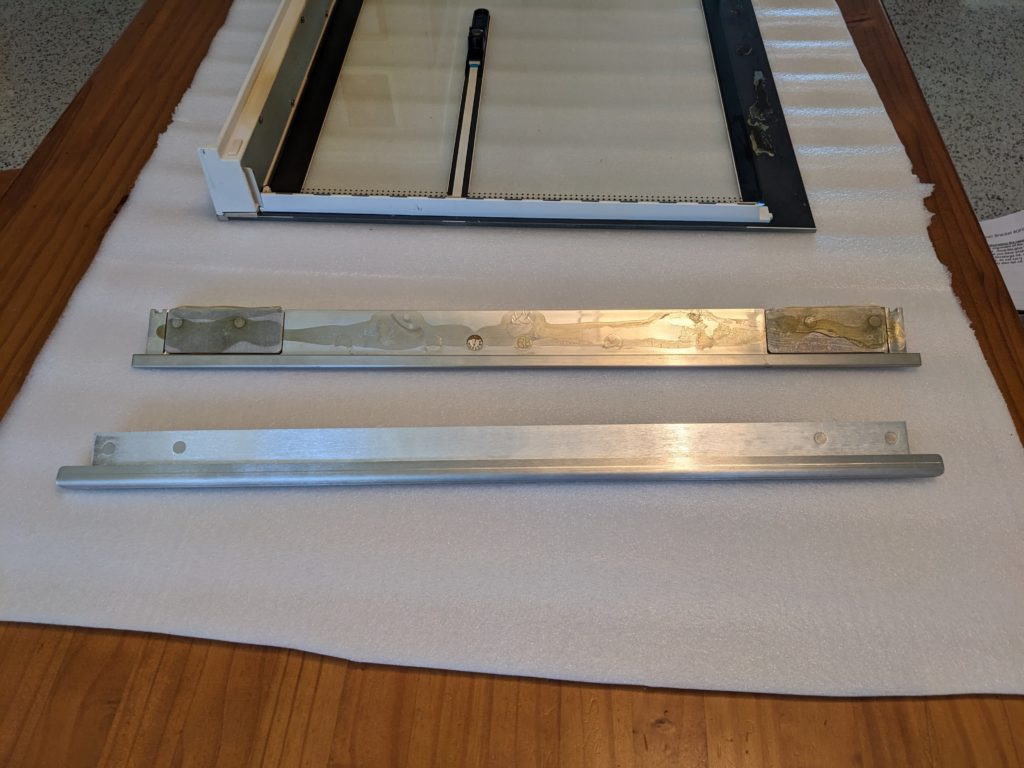Shill bidding is when somebody places a bid on an auction solely to drive up the price of the item, without intending to purchase the item. Typically shill bids are placed by the seller or a confederate of the seller to increase the profit from the auction.
In an effort to combat shill bidding, online auction sites such as Ebay typically disallow anonymous bidding, but it can still happen. To combat shill bidding on a personal level, it helps to make your bid at the last minute (so shill bidders can’t react to your bid) and to never increase your initial bid. (You should always bid the maximum you are willing to pay.)
Posted below is the complete bidding history for a laptop computer which I believe exhibits shill bidding. The shill bidding appeared to use two different accounts (one with zero feedback, and another account that was more established) in an attempt to disguise what was going on. Names and auction ID numbers have been changed to protect the innocent. I am using male pronouns for all bidders as statistically speaking that is more likely for Internet criminals.
Here is a timeline of events:
- June 12 21:29 – s**r (3838) places the initial bid for $111.
- June 12 22:53 – p***o (96) places the 2nd bid for $220.00
Ebay automatically bids for him in the amount of 113.50, which is just enough to become the high bidder on the laptop. - June 13 9:36 – o***t (265) attempts to outbid the current 113.50 bid by bidding $116, but is automatically outbid by p***o(96) when Ebay automatically
increases his bid to 118.50 - June 17 17:49 – u***q (167) attempts to outbid the current 118.50 by bidding 121.78, but is automatically outbid by p***o(96) when Ebay automatically increases his bid to 124.28. I believe this is the last legitimate bids other than my own from a time perspective, although EBay will continue to bid automatically for p***o (96) for several days.
- June 17 19:05 – 19:09 – t***t (2) ( a relatively new user with only two positive feedback and who changed his username in the last month) places three bids, each a few dollars higher than p***o (96)’s automatically increased bids, raising the auction price to 139.50.
It is possible that t***t (2) is a legitimate novice Ebay user trying to score a cheap laptop who moved on once the price got above his maximum bid of 137. However, immediately after he stops bidding, n***r (70) appears on the scene. - June 17 19:09 – 19:14 – n***r (70) begins to bid in small increments of $10-20 each, driving p***o (96)’s automated bids up to 192.50. A user with 70 feedback is typically well respected, so he could be a legitimate bidder. The only thing that makes me suspect this account is the fact that he started bidding immediately after t***t(2) stopped, and his bid retraction at the end of the auction.
- June 19 15:57 – b***s (0) places a bid for $221 an hour and a half before the auction closes, finally outbidding p***o (96)’s initial bid of $220. This could be a novice looking to score a reasonably priced used laptop, or a throwaway account.
- June 19 16:43 – Forty minutes before the auction ends, I place my bid for $245.62. I become the high bidder at $223.50.
- June 19 17:17:17 – n***r(70) bids $235.00 and is immediately outbid by my sanding bid which Ebay increases the auction to 237.50.
- June 19 17:17:24 (7 seconds later) n***r (70) bids $245.00 and is immediately outbid by my standing bid which Ebay increases to 245.62. (My Maximum bid.)
- June 19 17:17:34 (10 seconds later) n***r (70) bids 250, and becomes the high bidder!
- June 19 17:19:46 (2 minutes later) n***r (70) retracts his bid because he “Entered wrong amount”. I suspect they realized that I was not going to outbid them, and were worried about actually winning the auction (a shill bidder no-no).
I have participated in at least a thousand Ebay auctions, and been the winner in hundreds, and this is the first time I have encountered a bid retraction of this nature.
I suppose that n***r(70) could have gotten buyers remorse and decided he didn’t really want to pay $250 for the laptop, but I find it hard to believe that a person who carefully bid 150, 170, 182, 190, 235, 245 and 250 entered the wrong amount. And even if he did, why not just pay the extra $5 for the laptop? Coupled with similar behavior from b***s(0) and t***t(2) in the same auction, and something smelled rotten to me. Especially as n***r (70) began bidding only seconds after t***t(0) stopped on June 17 at 19:09.
In my opinion the last legitimate bid in this auction before my own as that of p***o(96) at $220 (the lower end of a reasonable market price for this laptop).
I called Ebay, and after they assured me they took shill bidding complaints very seriously, they advised me to contact the seller and tell him that I could not complete the auction and to offer it to the 2nd place bidder, n***r (70) at 0.46 less than my bid. If n***r (70) was a legitimate but fat fingered bidder, he got a laptop at the maximum price he was willing to pay. (And the seller only lost 0.46 due to my suspicious nature.) If he was a shill bidder working for the seller…well, too bad for them.
The suspicious patterns you can look for is one or more low feedback bidders raising the auction price with small incremental bids (as they search for the ceiling of legitimate bids) possibly combined with a more respectable high feedback bidder who makes the final (risky) shill bids. If they are outbid in the end, great, but if not, the legitimate looking account can retract their last bid.
In this particular case I had a time commitment that prevented me from entering my maximum bid very close to the end of the auction. However, that is my recommended strategy. It denies other bidders (both legitimate and shill) of any information, but ensures you will win the auction if nobody
else is willing to pay more than your maximum bid.



